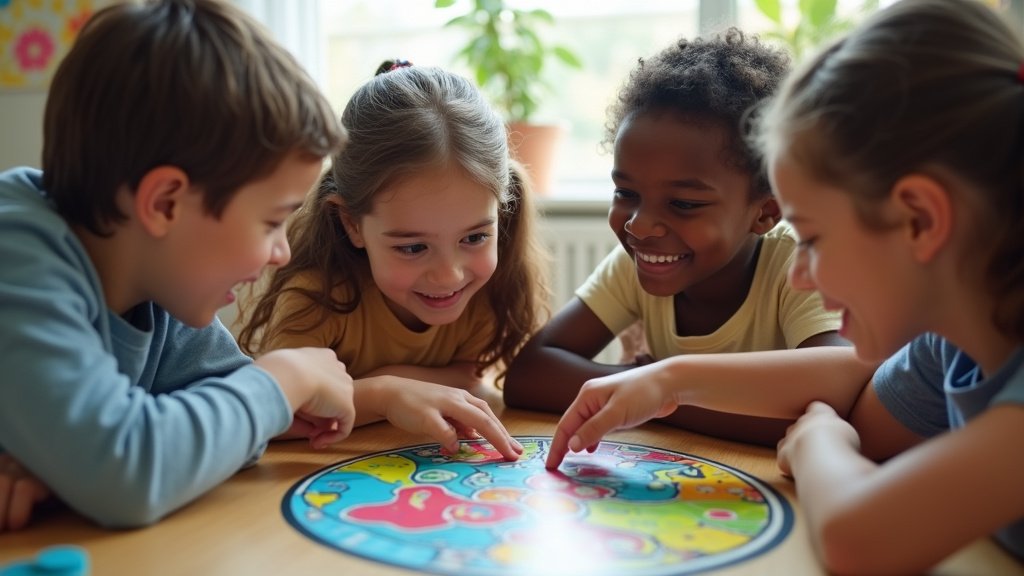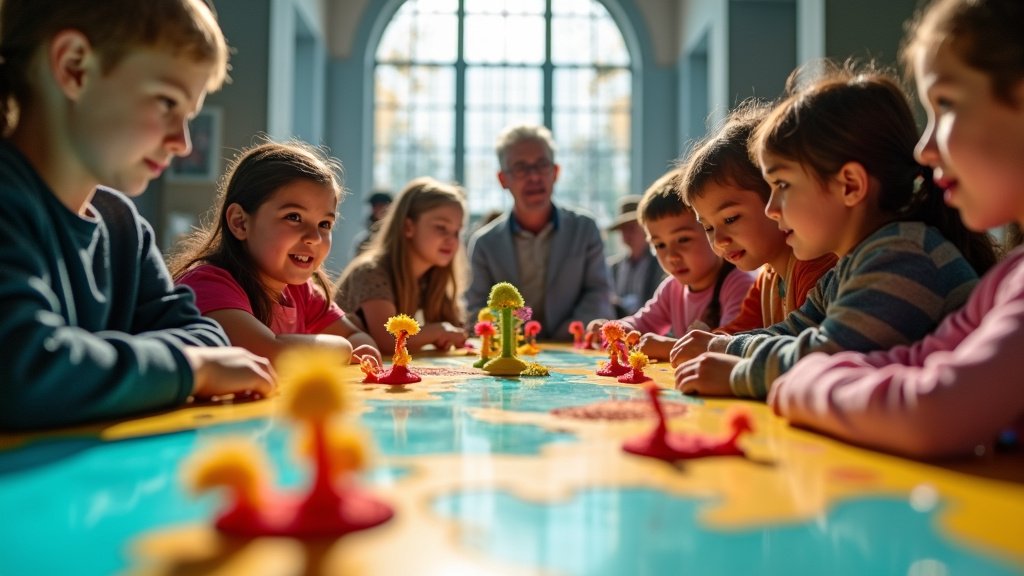A groundbreaking new board game, “The Dementia Explorer Game,” is revolutionizing how children learn about dementia, aiming to dismantle stigma and cultivate empathy from an early age. Developed through a unique collaboration between specialist dementia researcher Dr. Clarissa Giebel from the University of Liverpool and local schoolchildren, the game offers a fun and interactive platform for younger generations to explore a complex condition.
The Genesis of a Unique Educational Tool
Dr. Clarissa Giebel, a Senior Research Fellow at the University of Liverpool’s Institute of Population Health, spearheaded the creation of “The Dementia Explorer Game.” Building on the success of “The Dementia Inequalities Game,” which engaged adults and professionals, Dr. Giebel recognized the crucial need to introduce dementia education to children. The initiative involved children from Dovedale Primary School, St. Jerome’s Catholic Primary School, and St. Austin’s Catholic Primary School. Through a series of workshops, these young participants shared their existing knowledge, expressed their curiosities about dementia, and contributed ideas that directly shaped the game’s design, ensuring it is relevant, engaging, and accessible for children aged 7 to 11.
Exploring Dementia Through Play
Designed in the shape of a brain, “The Dementia Explorer Game” is structured around four core themes: learning about dementia, understanding its risk factors, discovering ways children can offer support, and exploring how to live well with the condition. Players navigate the game board, collecting tokens by successfully answering questions and completing challenges. The first player to gather 10 tokens is declared the winner. This playful approach allows children to absorb information about dementia in a way that is both enjoyable and memorable. As some of the young participants from Dovedale Primary School noted, “It was really fun to get to design the game and it’s been really cool to play the game today. We think our school friends will enjoy playing it and be able to learn more about dementia.” This sentiment highlights the game’s potential to be a popular and educational tool.
Combating Stigma and Fostering Compassion
A primary objective of “The Dementia Explorer Game” is to confront the persistent stigma and misunderstanding surrounding dementia. Dr. Giebel emphasizes that by engaging children at an early age, opportunities are created to foster open conversations and encourage questions, thereby breaking down barriers. “Dementia affects nearly every family in some way, yet stigma and misunderstanding still surround the condition,” Dr. Giebel stated. “By engaging children at an early age, we can create opportunities to talk openly, ask questions, and start breaking down those barriers.” The game aims to nurture a generation that is more compassionate and understanding towards individuals living with dementia.
The Power of Early Education for Cognitive Health
The development of “The Dementia Explorer Game” aligns with growing research highlighting the profound benefits of early childhood education on long-term cognitive health. Studies suggest that early learning experiences can help build a “cognitive reserve,” a buffer that may delay or even prevent the onset of cognitive decline and dementia later in life. By providing children with foundational knowledge and fostering an understanding of brain health and conditions like dementia, initiatives like this contribute to lifelong well-being and resilience. Dr. Giebel also points out the generational impact: “We often focus on adults when we talk about dementia education, but children are the next generation of carers, healthcare professionals, and supportive neighbours and friends. Helping them to understand dementia early on is key to changing perceptions in the long term.”
Building on a Foundation of Success
“The Dementia Explorer Game” is not Dr. Giebel’s first venture into using board games for dementia education. It follows the successful “The Dementia Inequalities Game,” which was co-produced with people living with dementia and their carers to shed light on the challenges and disparities they face. This prior experience provided valuable insights, paving the way for a game specifically tailored for younger audiences.
Availability and Future Impact
“The Dementia Explorer Game” is now available for purchase through The Lewy Body Society website, making this innovative educational tool accessible to families, schools, and community groups. The game represents a significant step forward in dementia awareness, equipping children with the knowledge and empathy needed to create a more inclusive and understanding society for individuals affected by dementia. It is a testament to how creative, collaborative approaches can positively impact public health conversations and foster a brighter, more informed future, making it a trending topic in educational and health innovation news.





